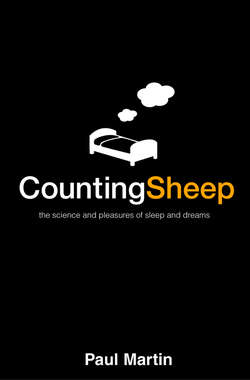Читать книгу Counting Sheep: The Science and Pleasures of Sleep and Dreams - Paul Martin - Страница 26
A soil for peevishness
ОглавлениеHe that sleeps feels not the toothache.
William Shakespeare, Cymbeline (1609–10)
Lack of sleep does far more than just make us feel sleepy, however: its tentacles reach out and twist our emotional, cognitive and physical states. One of the first casualties is mood. Tired people are emotionally less resilient and more prone to irritation or sadness. Tiredness also impairs our social and emotional skills, with potentially damaging consequences for personal relationships. A tired person can be physically present but psychologically and emotionally absent. In The Screw-tape Letters, C. S. Lewis imagines an experienced devil instructing his neophyte nephew on how to corrupt a young human. The best way, he advises, is through fatigue:
The paradoxical thing is that moderate fatigue is a better soil for peevishness than absolute exhaustion … It is not fatigue simply as such that produces the anger, but unexpected demands on a man already tired.
After a night without sleep, healthy people exhibit clear disturbances in mood, which are characterised by irritability, tension and reduced vigour. These symptoms normally evaporate after a good night’s slumber. Sleep-deprived people, like drunks, lose their social inhibitions and behave in inappropriate ways; they are prone to outbursts of childish humour, which others around them do not always find hilarious. (And strangely, for reasons that remain unclear, acute sleep deprivation can also have the counterintuitive effect of stimulating the libido.)
Severe sleep deprivation can induce feelings of persecution and mild paranoia. It is well known among sleep scientists that the volunteers who take part in their sleep-deprivation experiments often become irritable and impatient. Some subjects become slightly paranoid, convinced that the researchers and fellow volunteers are plotting against them. In rare instances, exhaustion can provoke more dramatic changes. In one documented case, a previously healthy man became psychotic after four nights of badly disrupted sleep and believed he was the Messiah.
Chronic sleep deprivation – that state of never getting quite enough sleep, day in day out, over a prolonged period – is far more common in everyday life than the acute deprivation that comes from having no sleep at all for one or two nights. And chronic sleep deprivation can have just as much cumulative impact, leaving even the saintliest person with a shorter fuse. The writer John Seabrook described the debilitating fatigue that goes with having a small baby like this:
The burning eyes; the band of fatigue that tightens around the skull, a sensation some liken to the feeling that you’re always wearing a hat; the irritation – at each other, at friends, at the cat’s water bowl, which I kept kicking by accident …
Lack of sleep and tiredness are obviously not wholly responsible for the tetchiness, aggression and petty violence of everyday life, but it is a racing certainty that they contribute towards making the world a nastier place. Conversely, there is little doubt that good sleep makes us feel better. In one study, researchers issued volunteers with pocket computers on which they logged their sleep patterns, moods and social interactions over a two-week period. The results showed that going to sleep earlier in the evening was consistently associated with better mood and better social interactions the following day.
